Some posts on this site contain affiliate links. If you book or buy something through these links, I earn a small commission (at no extra cost to you). Take a look at my privacy policy for more information.
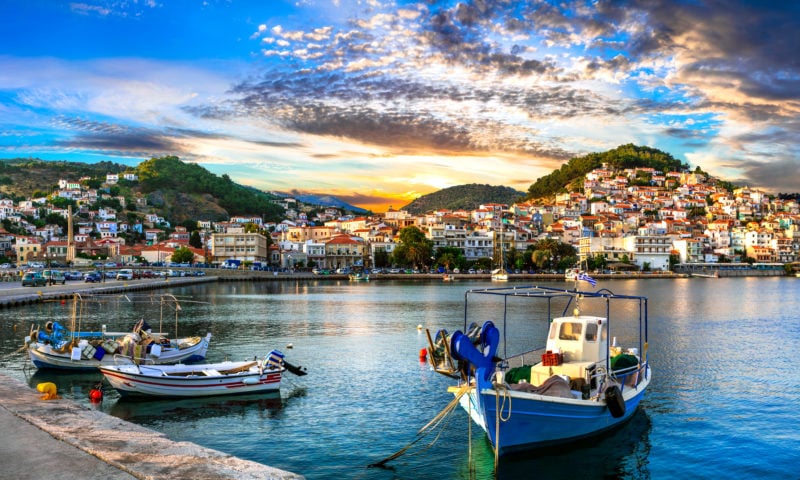
A quick guide to the top things to see and do in the Greek island of Lesvos (aka Lesbos)….
Lesvos – it’s not the most well-known of the Greek islands, or the most popular, but that just adds to its appeal! This is a true hidden gem.
Situated in the North Aegean sea, close to Turkey, Lesvos is actually the third-largest Greek island. Here, you’ll find over 300 km of beautiful, unspoilt coastline.
Its large size, rich variety of things to see and do, and authentic Greek vibes make Lesvos an ideal location to explore during your next trip to Greece! There are direct flights from the UK in peak holiday season – and it’s easy to fly there via Athens all year round.
Lesvos has something for everyone – so here are some of the top things to do when you visit the incredible island of Lesvos…
Top Things to do in Lesvos
1. Discover the Amazing Lesvos Beaches
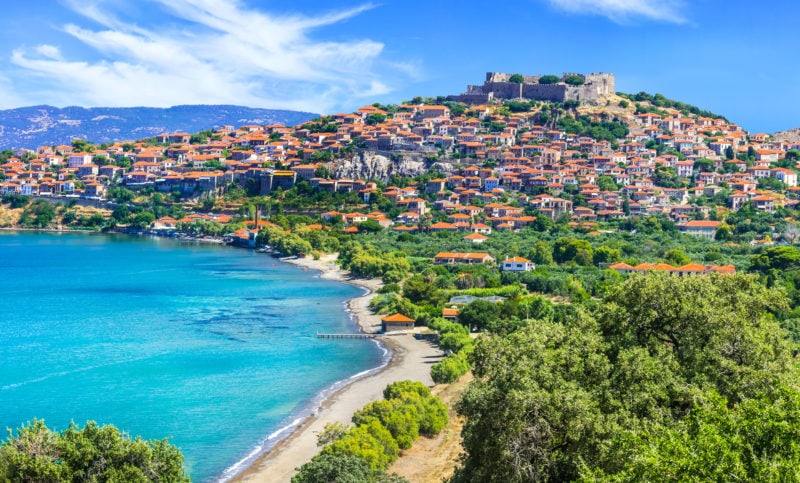
It’s not possible to talk about Lesvos without mentioning the amazing beaches, and on this island, there’s something to do for everyone!
If you like organised beaches with sun umbrellas and loungers, then you’re well catered for all over the island from Molyvos and Anaxos, to Agios Isidoros, Skala Eressos and Skala Kalloni.
Prefer seclusion and peaceful isolation? Try Tsonia, Chroussos or Antissa. The beaches at Petra and Gavathas are gently shelving, so they make ideal places to visit with small children and non-swimmers.
There are white sandy bays at Tokmakia, which can be reached best by boat, but also shingle beaches, red sand beaches, rocky coves perfect for snorkelling, beaches ideal for watersports, and hidden spots for nudists. With crystal clear, turquoise waters, everyone is able to find their happy place here!
2. Drink Ouzo!
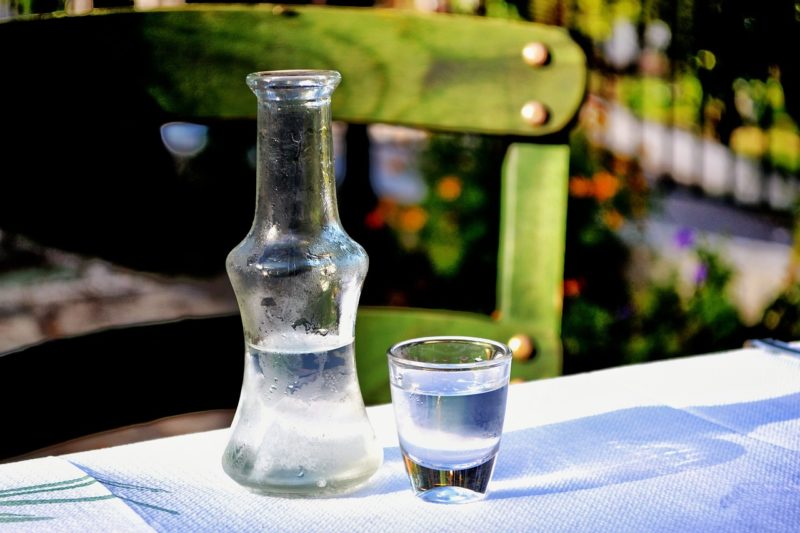
Yes, the famous Greek spirit Ouzo is from Lesvos. In fact, over 50% of the Ouzo produced worldwide is made here: there are over 15 distilleries on the island.
Ouzo is a sweet and strong alcoholic drink made from the by-products of wine-making, and distilled into a drink, flavoured with anise, mastic and various herbs. Different brands taste subtly different so make sure you try a few varieties.
How you drink it is important to the Greeks – sip it slowly, with ice or cold water. Don’t do shots: ouzo is meant to be savoured! You can visit the distilleries and Ouzo museums on the island, and take home a few samples to try at your leisure…
3. Visit the Petrified Forest on Lesvos
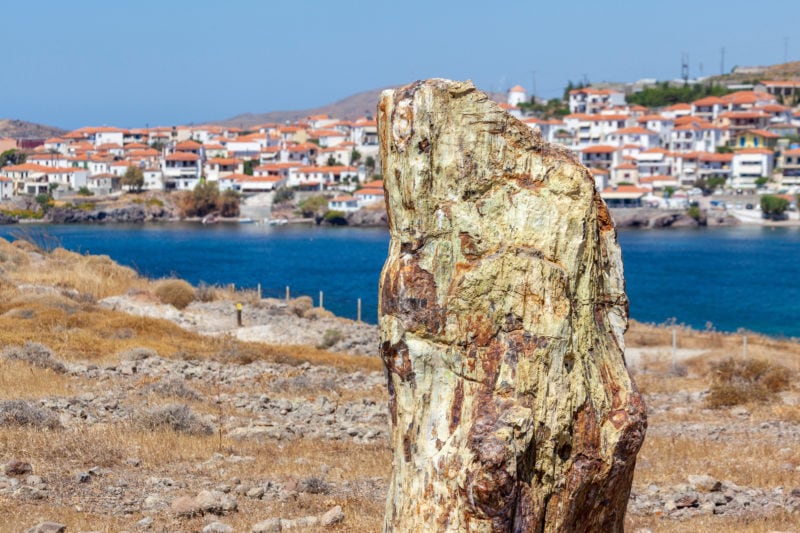
No, not frightened trees, but a forest of trees turned to stone by a volcanic eruption. This awe-inspiring lunar landscape is one of only two petrified forests in the world and is a UNESCO Heritage site.
Remnants of huge tree trunks, flowers, and plants are fossilised where they fell over 20 million years ago. Lesvos Petrified Forest has been called the ‘Pompeii of the Plant world’!
You can book a tour round the park – don’t forget to take water as it’s very hot and there’s no shade. And don’t miss the new modern museum in Sigri to learn more about this amazing geological phenomenon.
4. Explore Lesvos’ Picturesque, Authentic villages
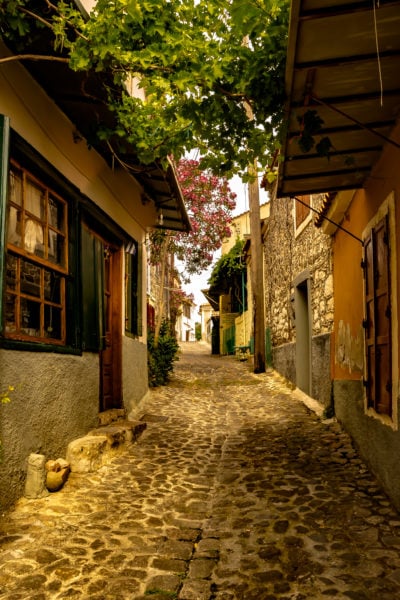
The traditional villages of Lesvos should definitely be on your travel list. The buildings are mostly stone with red roofs, but there’s a mix of architecture reflecting the island’s past with Byzantine, Roman, Ottoman and Turkish influences.
The most famous village is Molyvos, with its winding cobbled streets, castle and pretty harbour. Better still, Molyvos is protected – so there are no high-rise buildings or overdevelopment here.
Petra, with its church on the rock, is also well worth a visit. And don’t miss Plomari with its colourful harbour, or Matamados with its famous monastery and traditional handmade, painted pottery.
Wherever you stop, you’re sure to find the most hospitable local people, great Greek coffee, and a welcoming atmosphere. So make sure you get out and about to explore.
5. Eat Local Food!
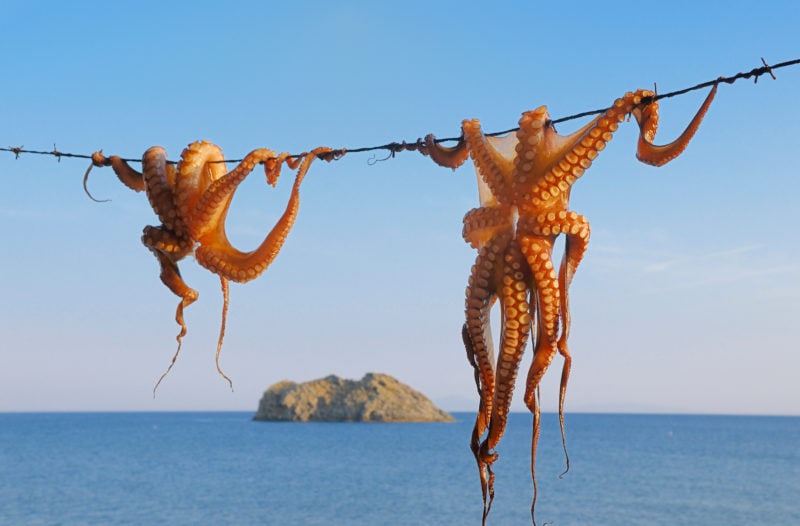
One of the best ways to immerse yourself in Greek culture is to eat as much delicious Greek food as possible! Lesvos’ location between East and West – as well as the favourable climate – means that the food here is unforgettable.
If you’re keen on travelling sustainably too, Lesvos is one of the places with the lowest food miles. So you can eat amazing local food, grown and produced right by where you are eating it. Everything from local olives, honey, and cheese to freshly caught fish or seafood (Kalloni is famous for sardines!) and kitchen gardens bursting with tomatoes, aubergines and courgettes.
The locals are justifiably proud of this local produce and are always happy to tell you the origin of whatever you order. Ask what’s fresh today and you’ll probably hear what was picked that morning from the family’s gardens! There’s plenty for all tastes including vegetarians and vegans as well as meat and seafood lovers.
6. Explore the Amazing Nature
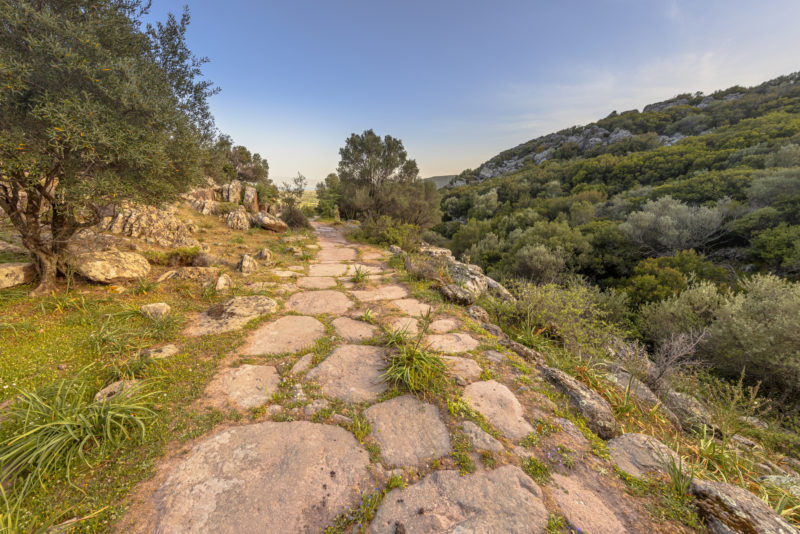
As a larger island, there’s much more to Lesvos than simply beautiful beaches – the island has some amazing nature to discover.
Lesvos is particularly famous for bird-watching. Even if this isn’t your idea of fun, there is something magical about seeing pink flamingos on the plains near Kalloni!
For marine life, you can also snorkel and scuba dive in the azure Aegean sea. The island’s northern side and the Bay of Gera are popular diving spots
Love to get active? There are hiking trails and mountain biking routes galore on Lesvos. Some of the most breathtaking waterfalls in Greece are found on this island. If you’re up for a short hike, try visiting the one at Vathylimno – it’s breathtaking.
Finally, unwind with a trip to one of the five natural thermal springs on the island, where waters reach 40°C. There are said to be numerous health benefits, especially when you combine dipping in the hot mineral water with cooling off in the sea!
7. History and Culture
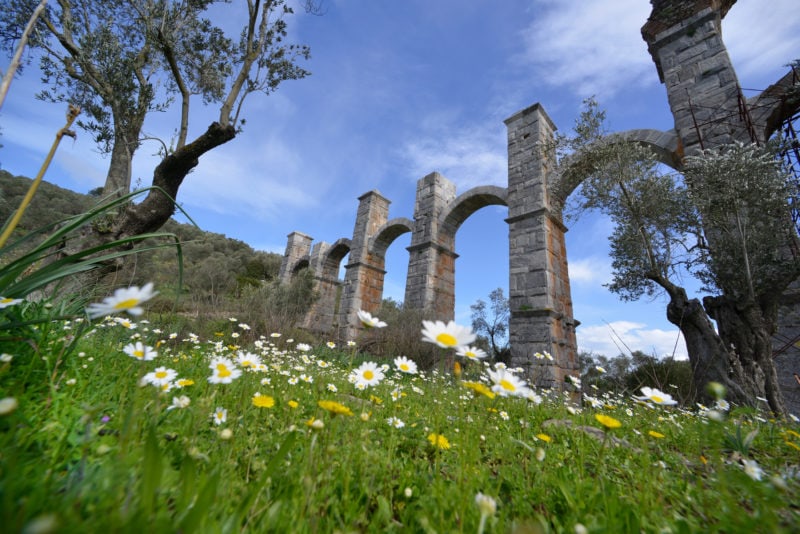
There are ruins in Lesvos dating back to 2100 BC – so if you love Greek history there’s plenty to explore. One of the best sites to visit during your stay is the Temple of Messon – apparently built for the Greek Gods, Dionysus, Hera and Zeus in the 4th century BC. It’s surrounded by nature and you can almost feel the years of history as you walk round the ruins.
Molyvos, Mytilene and Sigri all have ancient castles worth visiting. Mytilene Castle is one of the largest in the Mediterranean and has been destroyed and rebuilt by the Romans, Byzantines, Venetians and Turks.
Nowadays, Molyvos and Mytilene castles are used for cultural performances. The open-air concerts are simply amazing in such historic settings! There’s also a Roman Aqueduct and a sizeable ancient theatre, as well as some impressive mosques and temples to explore.
Is it Lesbos or Lesvos?
Although many Brits write Lesbos, the official name of the island is Lesvos. In fact, it’s spelt Λέσβος in Greek: and the Greek letter ‘β’ is pronounced as a ‘v’.
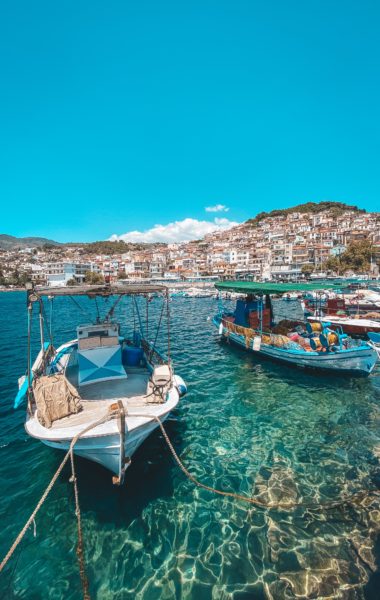
Final Thoughts
If you want to visit an authentic Greek island, with beautiful beaches, lots of history and plenty of things to see and do, make sure Lesvos is part of your holiday planning.
You can get there easily by plane or ferry from Athens (click here for my guide on getting from the ferry port to Athens city centre).
Just like nearby Paros, this island has a slow pace of life, tons of beautiful nature, and never feels too over-touristy!
It might not be as well known as other Greek islands but that’s part of its appeal. After all, being a “hidden gem” means Lesvos is often much better value and much less crowded – even during peak season!
Do you know any more great things to do in Lesvos? Scroll down to leave a comment with your tips!

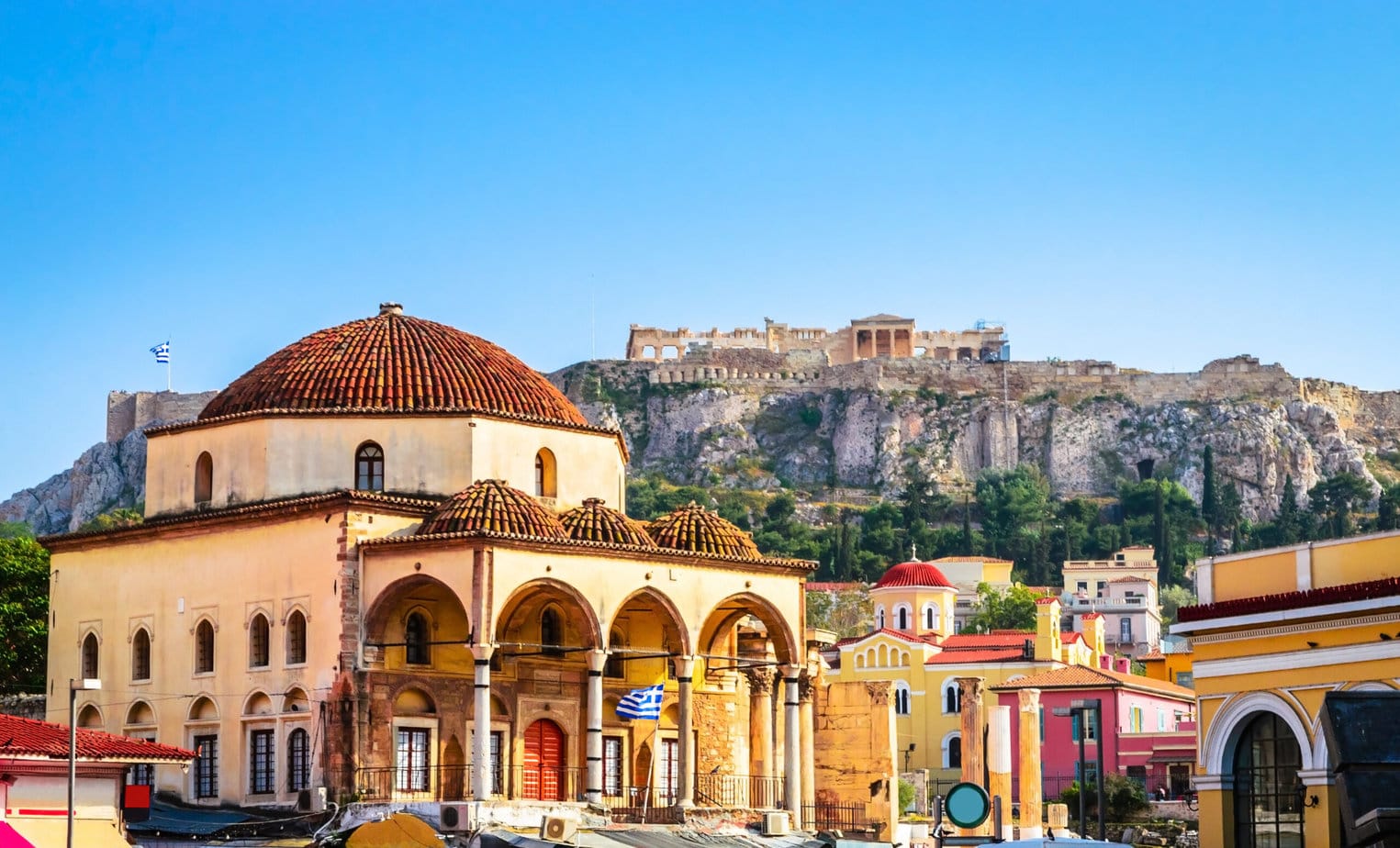
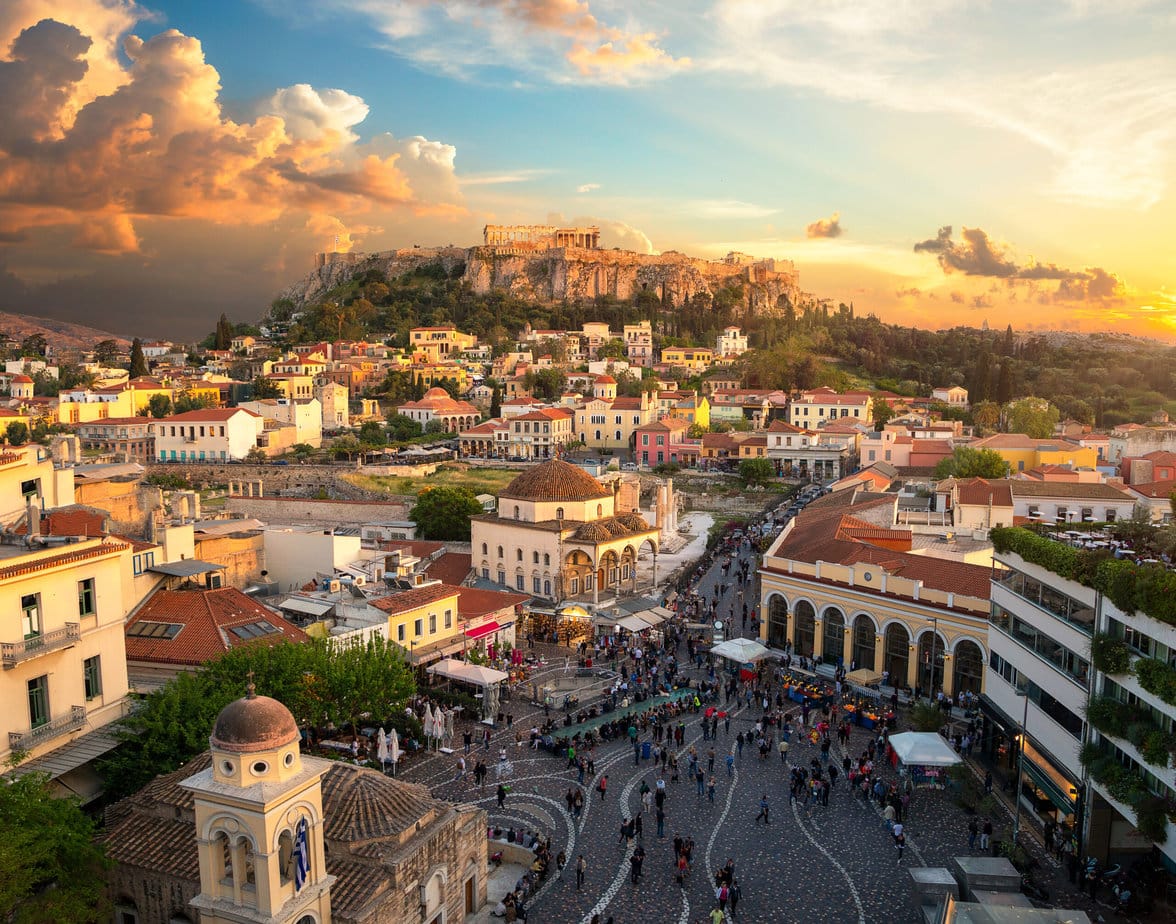
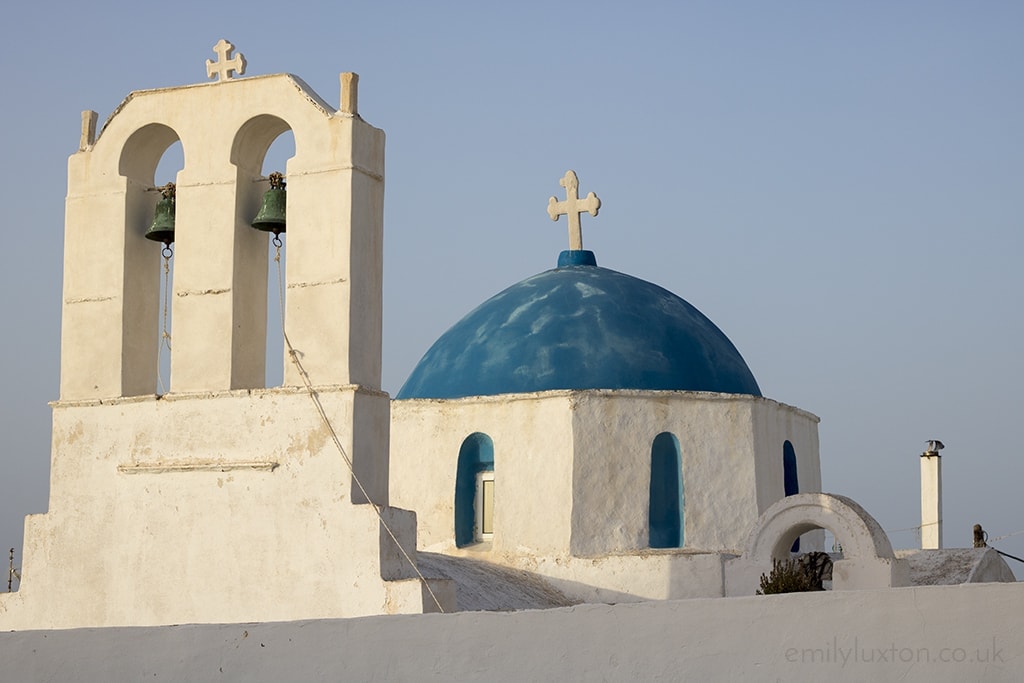
I have always overlooked Lesvos but you may have convinced me to visit. With the Mytilene Castle for my love of History, protected cobbled villages and I didn’t know it was the Ouzo capital. Thanks for the Great info – Keep it coming!
Thanks for reading & commenting – it means a lot :)